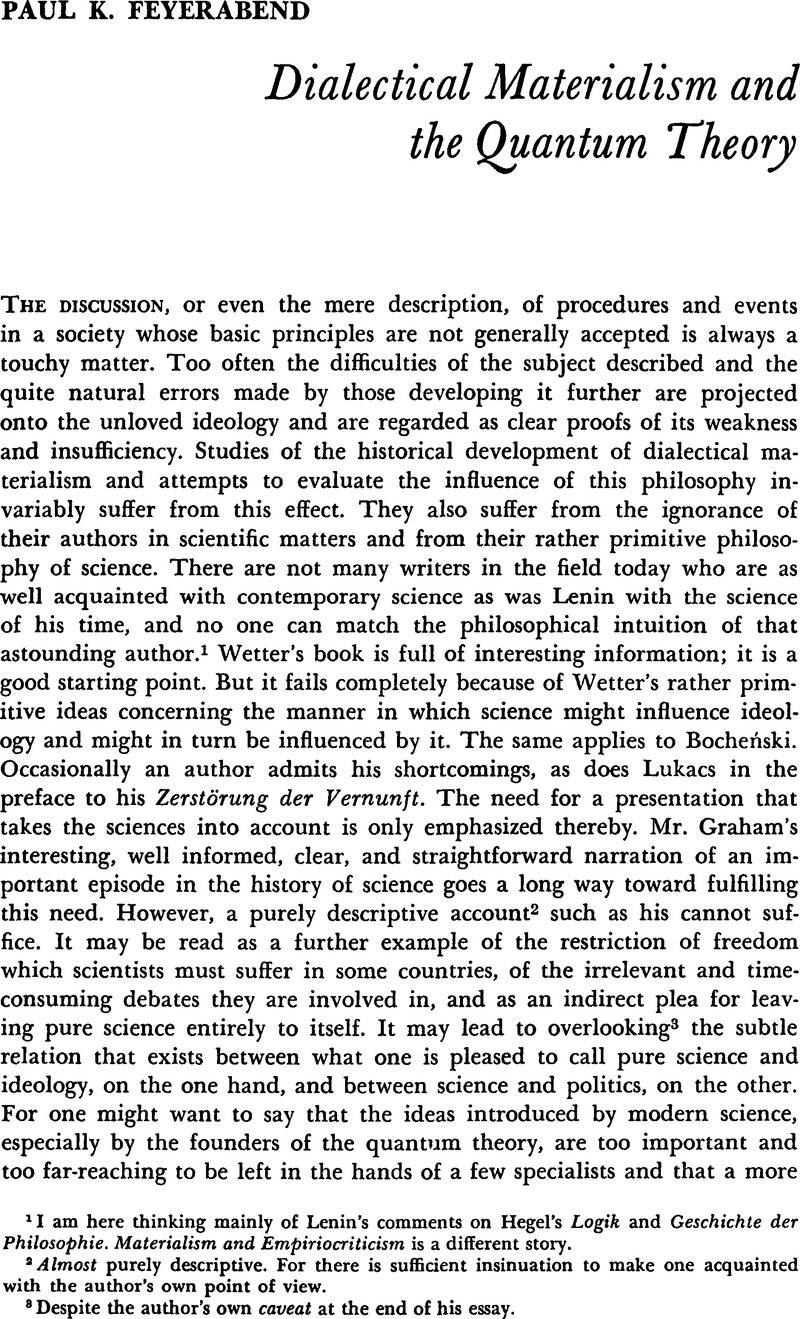Article contents
Dialectical Materialism and the Quantum Theory
Published online by Cambridge University Press: 27 January 2017
Abstract

- Type
- Discussion
- Information
- Copyright
- Copyright © Association for Slavic, East European, and Eurasian Studies. 1966
References
1 I am here thinking mainly of Lenin's comments on Hegel's Logik and Geschichte der Philosophic Materialism and Empiriocriticism is a different story.
2 Almost purely descriptive. For there is sufficient insinuation to make one acquainted with the author's own point of view.
3 Despite the author's own caveat at the end of his essay.
4 They are there, but concealed as “experimental facts.” The principle that philosophy must be partial, rightly understood, brings them to the fore and thereby makes them accessible to criticism.
5 Empiricism has not yet developed such standards either, but it has at least progressed on this path a little further, as is evident from Newton's rules and the research of Carnap and his school. Of course, Carnap's principles are all highly questionable, but at least here we have some material which we can examine and criticize.
6 There may be a more “idealistic” elaboration of (2), (3), and (4) which allows for an initial clash between praxis and idea and expects that a revision of experience will lead to progress. These versions are not very widespread, however, as is seen from the earlier objections to Einstein's theory of relativity.
7 Bohr's favorite example, which he used again and again in discussions, was the refutation of the original Pythagorean creed by the discovery of the square root of 2, and the subsequent extension of the concept of number.
8 Cf. Abner, Shimony, “Role of the Observer in Quantum Theory” American Journal of Physics, XXXI, No. 10 (Oct. 1963), esp. 768 ff.Google Scholar, as well as G., Ludwig, Die Grundlagen der Quantenmechanik (Berlin, 1954), Chap. VI, esp. p. 171 Google Scholar.
9 Klaus Meyer-Abich, Korrespondenz, Individualität, und Komplementarität (Wiesbaden, 1965).
10 Physical Principles of the Quantum Theory (Chicago [1930?]), a book Bohr was not too happy about.
11 That idealism can have a positive function at certain periods of the history of our thought was recognized by Lenin: “It is the crude, metaphysical, simplistic materialist who regards philosophical idealism as being merely nonsense” (“Concerning Dialectics,” in Lenin, Aus dem philosophischen Nachlass (Berlin, 1949), page 288. He did not apply this principle to Mach, however. And yet it was Mach who by his opposition to the supremacy of mechanics opened the way to a more dialectical point of view.
12 See my “Problems of Empiricism,” in Beyond the Edge of Certainty, ed. R. G. Colodny (Englewood Cliffs, 1965).
13 See his debate with Planck in Zwei Aufsätze (Leipzig, 1916).
- 10
- Cited by


